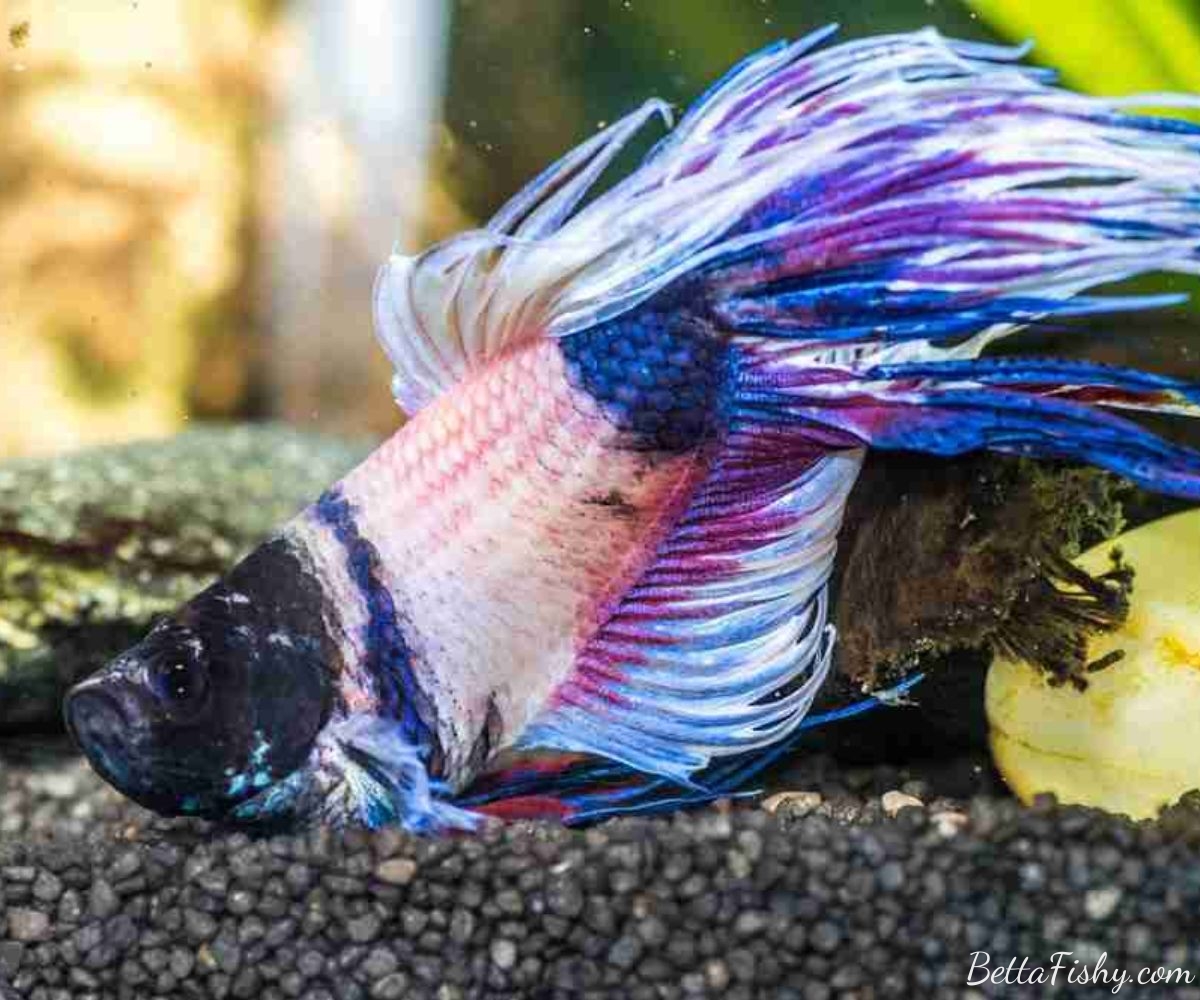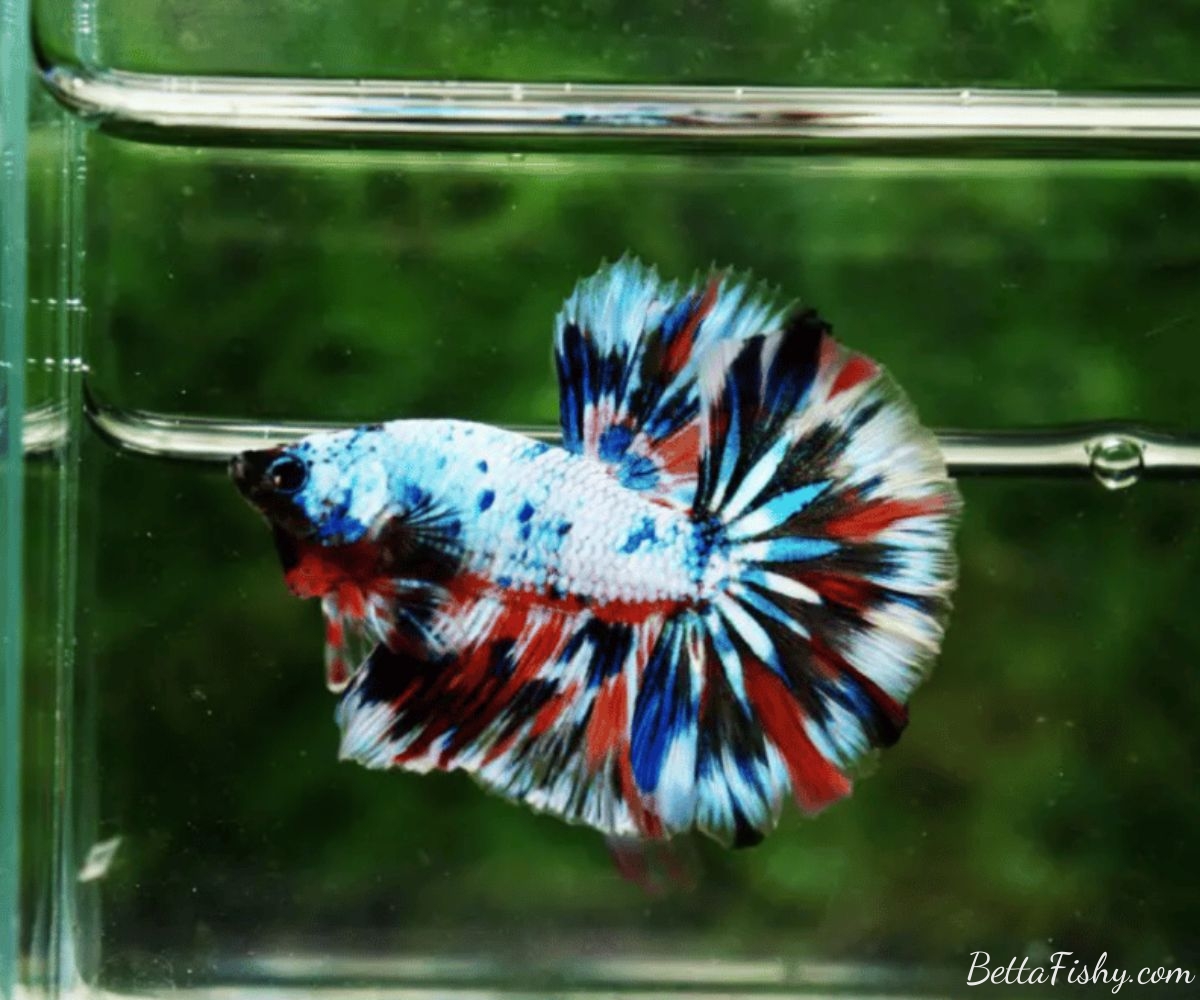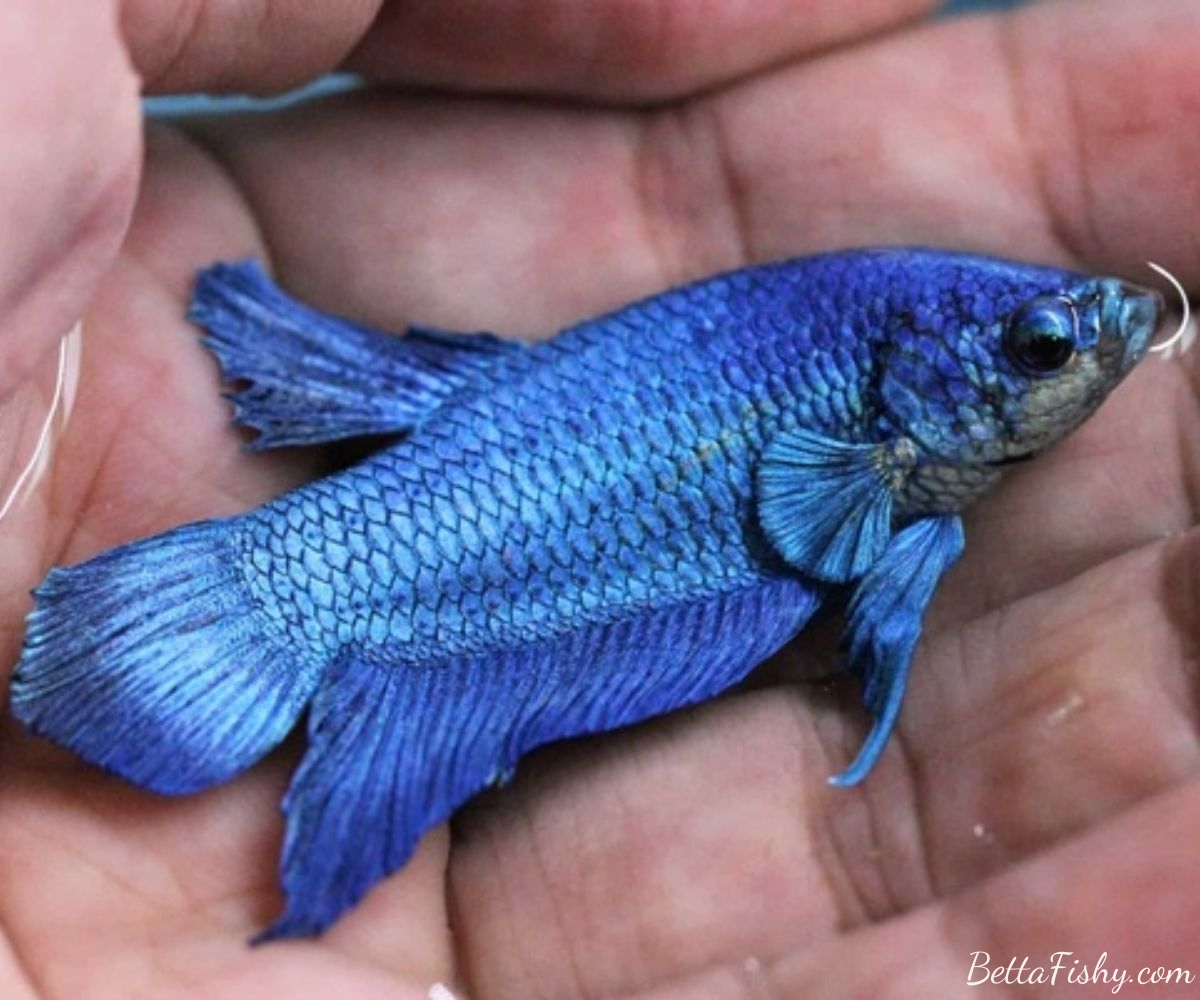Introduction
Betta fish can live 2-4 years on average if given proper care, but they exhibit clear signs when they are reaching the end of their natural lifespan. Recognizing betta fish behavior before death allows owners to identify when their betta’s health is declining and provide palliative care to keep them comfortable at life’s end.
With attentive care, regular tank maintenance, and a stress-free environment, betta fish can thrive and potentially surpass the average 2-4 year lifespan. However, all fish eventually show signs of aging and disease. Instead of focusing on treating elderly bettas, owners can shift to prioritizing comfort and quality of life in their final days. This article by BettaFishy will help you get some more information to better recognize and care for your fish
Before The Betta Fish Dies, External Indications Are Most Obvious

There are a number of physical signs that can indicate a betta fish is nearing the end of its life. Some of the most common include:
Fading color – As bettas age, their vibrant colors will often become dull and fade, especially in the eyes as they turn cloudy or white. This can be one of the first signs of aging.
Deteriorating fins/scales – Betta fish rely on strong fins and scales for swimming and protection. When they near death, their fins may fray and their scales fall off or appear damaged. The fins may also clamp close to the body.
Bloating – A betta with a swollen or bloated belly could be retaining fluid and experiencing organ failure. This abnormal swelling is often seen in older fish.
Growths/lesions – Benign tumors and ulcers can develop on bettas’ bodies as their immune systems decline. These growths and lesions signal deterioration.
Floating abnormally – Near death, bettas may float sideways, upside-down, sink to the bottom or have trouble staying upright. They lose equilibrium and control of their swim bladder.
Clamped fins – Fins held tightly against the body signify weakness, stress and discomfort. A dying betta fish will often keep its fins clamped.
The Betta Fish Behavior Before Death Changes
As betta fish near the end of their life, owners may notice significant changes in their behavior and demeanor. Some of the most common behavioral signs that a betta is dying include:
- Lethargy – Bettas are normally active fish, but a dying betta will often become very listless and unresponsive. They seem to lose energy and motivation to swim around or explore their tank.
- Hiding – Bettas typically enjoy swimming out in the open, but a dying fish will frequently hide in a corner at the bottom of the tank. They try to find a quiet, sheltered spot away from activity.
- Loss of appetite – Healthy bettas are voracious eaters, but a betta approaching death will completely lose interest in food. They may ignore pellets or flakes entirely.
- Gasping at the surface – As their health fails, bettas often struggle to breathe and will gasp for air at the water’s surface. Their gills have difficulty extracting oxygen.
- Unresponsive to stimuli – Dying bettas often become unresponsive to owners tapping on the tank or even feeding time. They retreat inwardly and ignore external stimuli.
Noticing these behavioral changes can clue owners into declining health and quality of life. It indicates the body is beginning to shut down. While concerning, owners can still provide comfort care in their betta’s final days.
Common Causes of Your Fish’s Early Demise

There are several common causes that can lead to premature death in betta fish:
Poor water quality is one of the most frequent reasons bettas die early. High levels of ammonia and nitrites from fish waste can poison the water. Bettas are sensitive and need excellent water quality. Performing regular partial water changes and testing water parameters helps prevent this.
Injuries from fighting or aggressive tank mates like fin nipping fish can stress bettas and expose them to infections. It’s best to keep male bettas solitary and avoid mixing them with nippy species.
Bacterial infections are common in bettas and can be deadly if untreated with antibiotics. Infections may arise from poor water quality, injuries, or introducing new tankmates without quarantine.
Digestive issues like constipation from overfeeding or bloating from a diet with low fiber content can interfere with a betta’s swim bladder regulation. This can prevent them from reaching the water’s surface to breathe.
Old age is a natural cause of death for bettas reaching their lifespan limit of 2-4 years. Gradual organ failure can occur.
Chronic stress is taxing on the immune systems of bettas. Stress can be caused by environmental factors like small tanks, inappropriate water temperatures, or frequent disruptions.
Genetic issues from excessive inbreeding can create health problems that lead to premature mortality. Selecting bettas from reputable breeders can help avoid this.
Some Notes to Prevent Betta Fish From Dying Prematurely
There are several key things betta owners can do to help prevent premature death and extend the lifespan of their fish:
Perform regular partial water changes of 25-50% weekly. This helps dilute waste buildup like ammonia and nitrates.
Test water parameters like pH, ammonia, nitrites, and nitrates. Ideal levels remove toxins and reduce stress on the immune system.
Feed a high quality and varied diet like betta pellets, frozen foods, and occasional live treats. Proper nutrition prevents disease.
Quarantine new fish for 2-4 weeks before introducing to watch for signs of illness. This prevents spreading contagious diseases.
Avoid overcrowding by providing at least 2 gallons per betta with filtration. Overcrowding causes stress, aggression, and poor water quality.
Reduce stressors like loud noises, bright lights, and high activity areas. Chronic stress weakens the immune system.
Select healthy fish from a reputable breeder or store when possible. This gives a stronger genetic foundation.
Assist Your Fish in Dying Comfortably

When a betta fish is identified as nearing end of life, the focus shifts to providing palliative care and comfort until death. There are several ways to help make a dying betta as comfortable as possible:
- Keep the betta’s environment stable and calm. Reduce noise, foot traffic, and tank activity that could stress the fish.
- Dim the tank lighting to avoid overstimulation and fatigue (natural daylight or low light is ideal). Placing a towel partially over the tank can also create a soothing environment.
- Add broad leaf plants or a floating betta hammock near the surface so the betta can rest without needing to constantly swim. Ensure the surface is free of obstructing equipment.
- Lower the water level to around 3 inches to make it easier for the betta to reach the surface for air.
- Consider discontinuing aggressive medical treatment that could further stress the fish, letting the betta pass away naturally.
The goal is to reduce stress and discomfort in the betta’s final days and weeks. A severely suffering fish may require euthanasia, but often reducing stimulation is all that is needed to allow natural death with minimal distress.
Conclusion
Knowing betta fish behavior before death such as the typical signs of aging and decline in betta fish can help owners provide appropriate end-of-life care. As bettas near the end of their natural lifespan, which is typically 2-4 years, owners may notice faded colors, deteriorating fins, loss of appetite, lethargy, and other symptoms. While it can be difficult to see a beloved pet decline, focusing on quality of life over quantity is important. Providing comfort through measures like soft resting spots, clean water, and reduced stress can aid dying fish.
Owners should also be prepared to consider euthanasia for fish experiencing severe distress or a poor quality of life. With attentive care and an understanding of the aging process, owners can support their betta through its final days.


